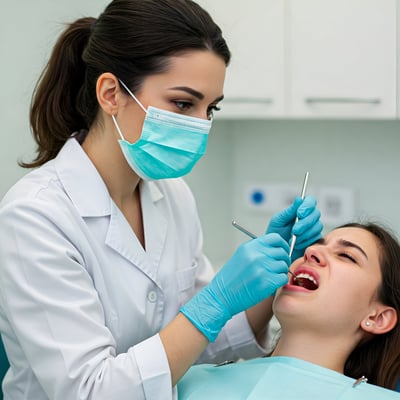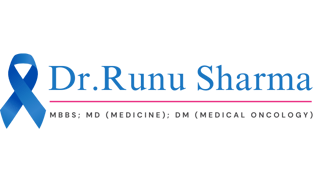👄 Mouth Cancer
Mouth cancer, also known as oral cancer, develops in the tissues of the mouth or throat. With early diagnosis and the right combination of modern treatments, mouth cancer is highly treatable, and many patients achieve excellent recovery and long-term wellness.
✅ Common Signs to Watch For:
A sore in the mouth that does not heal
A lump or thickening in the cheek
Difficulty chewing or swallowing
White or red patches inside the mouth
Changes in speech or voice
Regular dental check-ups and self-examination play a big role in early detection.
🌟 Treatment Options for Mouth Cancer:
The treatment approach is customized based on the location, stage, and individual needs. Common treatment options include:
Surgery:
To remove the tumor and, if necessary, reconstruct affected areas for the best cosmetic and functional outcomes.
Radiation Therapy:
Precisely targets cancer cells and is often used after surgery or as a primary treatment for smaller tumors.
Chemotherapy:
Used alongside radiation therapy or surgery to maximize treatment effectiveness.
Targeted Therapy:
Focuses on specific features of cancer cells to stop their growth.
Rehabilitation Services:
Speech therapy, nutritional counseling, and dental care support complete recovery and quality of life.


🧠 Understanding Mouth Cancer:
Mouth cancer can appear on the lips, gums, tongue, inner lining of the cheeks, roof of the mouth, or floor of the mouth. Early identification of changes or unusual symptoms can lead to very successful treatment outcomes.
🍽️ Stomach Cancer
Stomach cancer, also known as gastric cancer, begins in the cells lining the stomach. With advancements in early detection, surgical techniques, and modern therapies, stomach cancer can be treated very effectively, leading to greatly improved patient outcomes.
✅ Common Signs to Watch For:
Persistent indigestion or heartburn
Feeling bloated after eating
Loss of appetite
Unexplained weight loss
Stomach discomfort or pain
Regular check-ups and endoscopic screenings help in early detection, especially in individuals with risk factors.
🌟 Treatment Options for Stomach Cancer:
Treatment plans are personalized based on the cancer’s stage, location, and patient health. Common treatment options include:
Surgery:
Removal of the tumor or part (or all) of the stomach to ensure complete elimination of cancerous tissue.
Chemotherapy:
Used before surgery (neoadjuvant therapy) to shrink the tumor or after surgery (adjuvant therapy) to prevent recurrence.
Radiation Therapy:
Often combined with chemotherapy to target and destroy remaining cancer cells.
Targeted Therapy:
Focuses on specific proteins or genes driving the cancer’s growth (such as HER2-targeted therapies).
Immunotherapy:
Offers new hope for advanced stages by enhancing the body's immune response against cancer cells.


🧠 Understanding Stomach Cancer:
Stomach cancer usually develops slowly over time and often starts with pre-cancerous changes in the stomach lining. Early diagnosis allows for a wide range of effective treatment options that can completely remove or control the disease.
contact@drrunusharma.com
© 2025 by Dr. Runu Sharma. All rights reserved design and developed by Aline Solutions Online
First Floor, RS Aesthetics and Clinics Bishan Tower, 17/1-A, Canal Rd, near Mata Bala Sundari Mandir, Jakhan Dehradun, Uttarakhand 248195, India.
